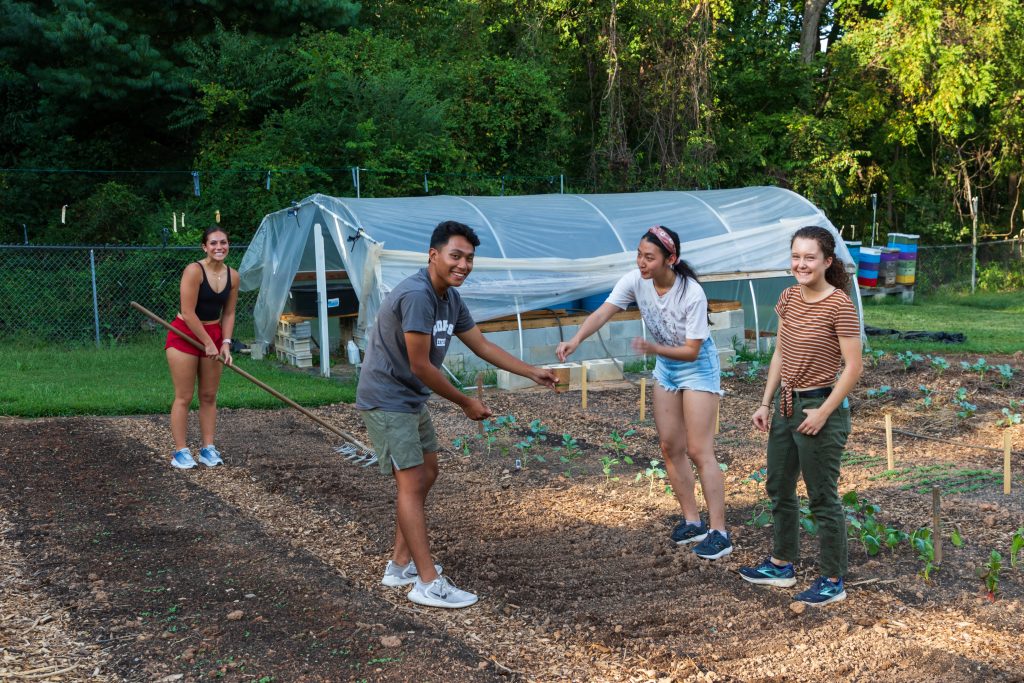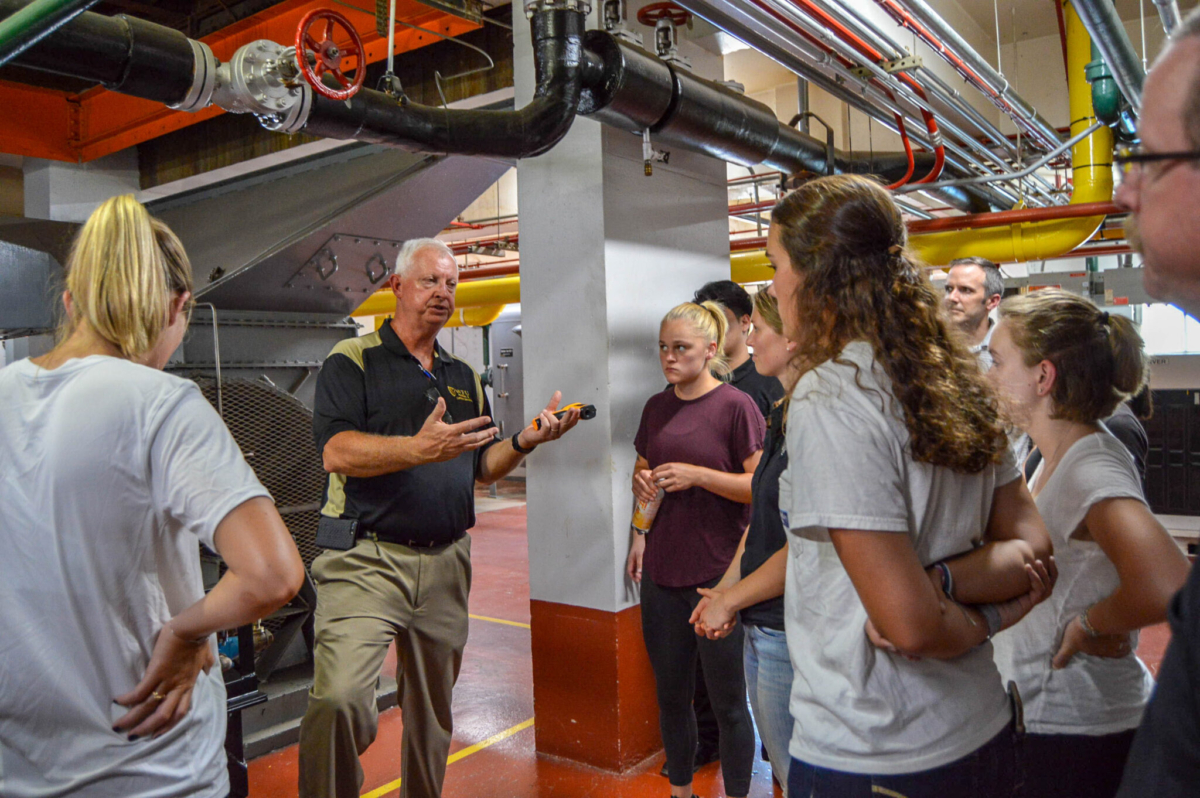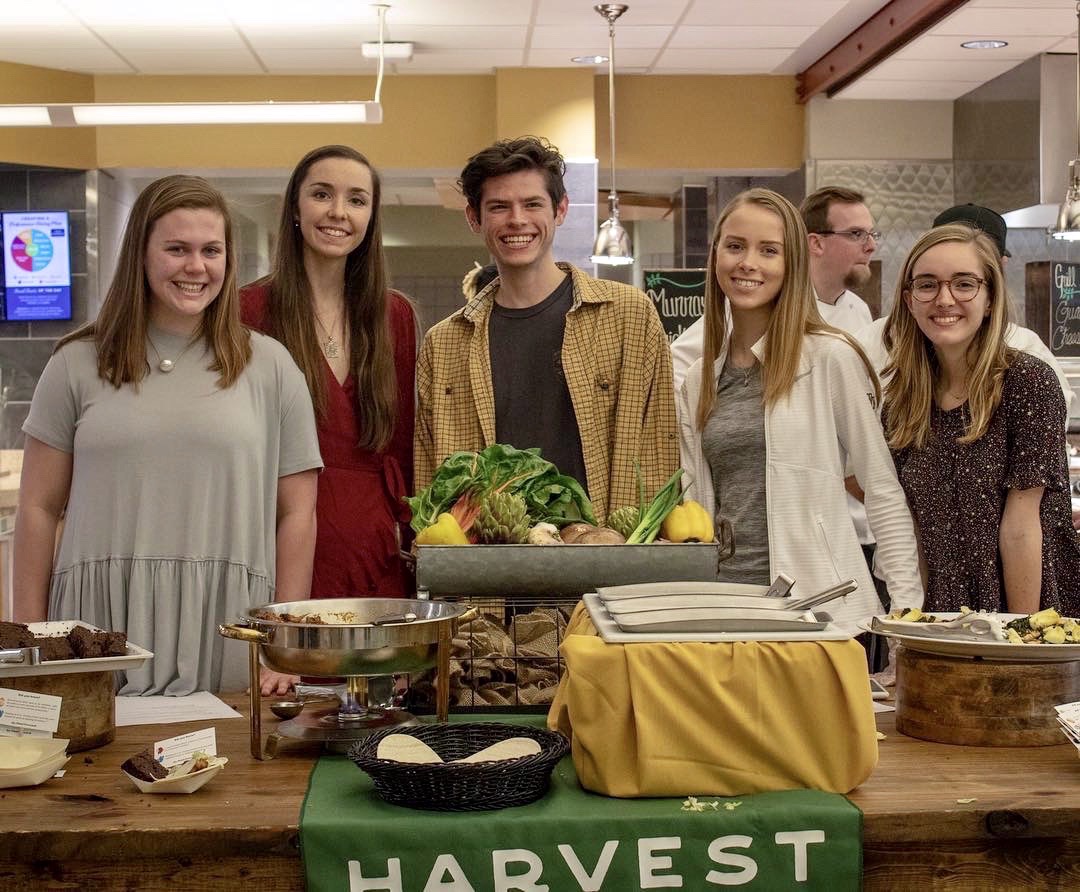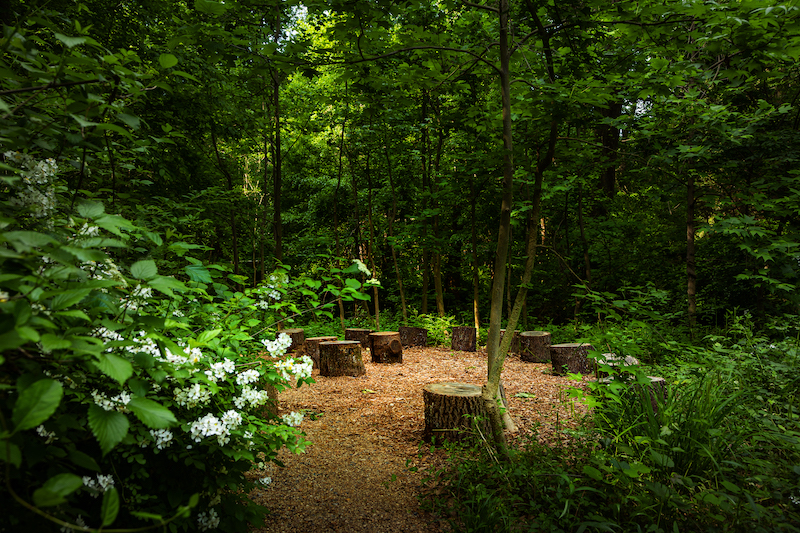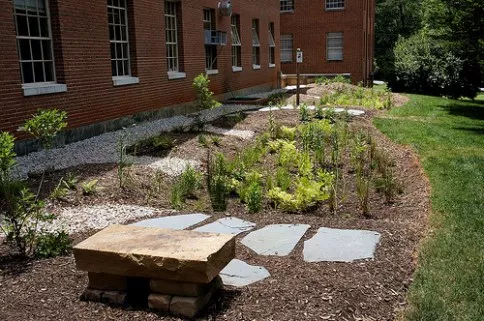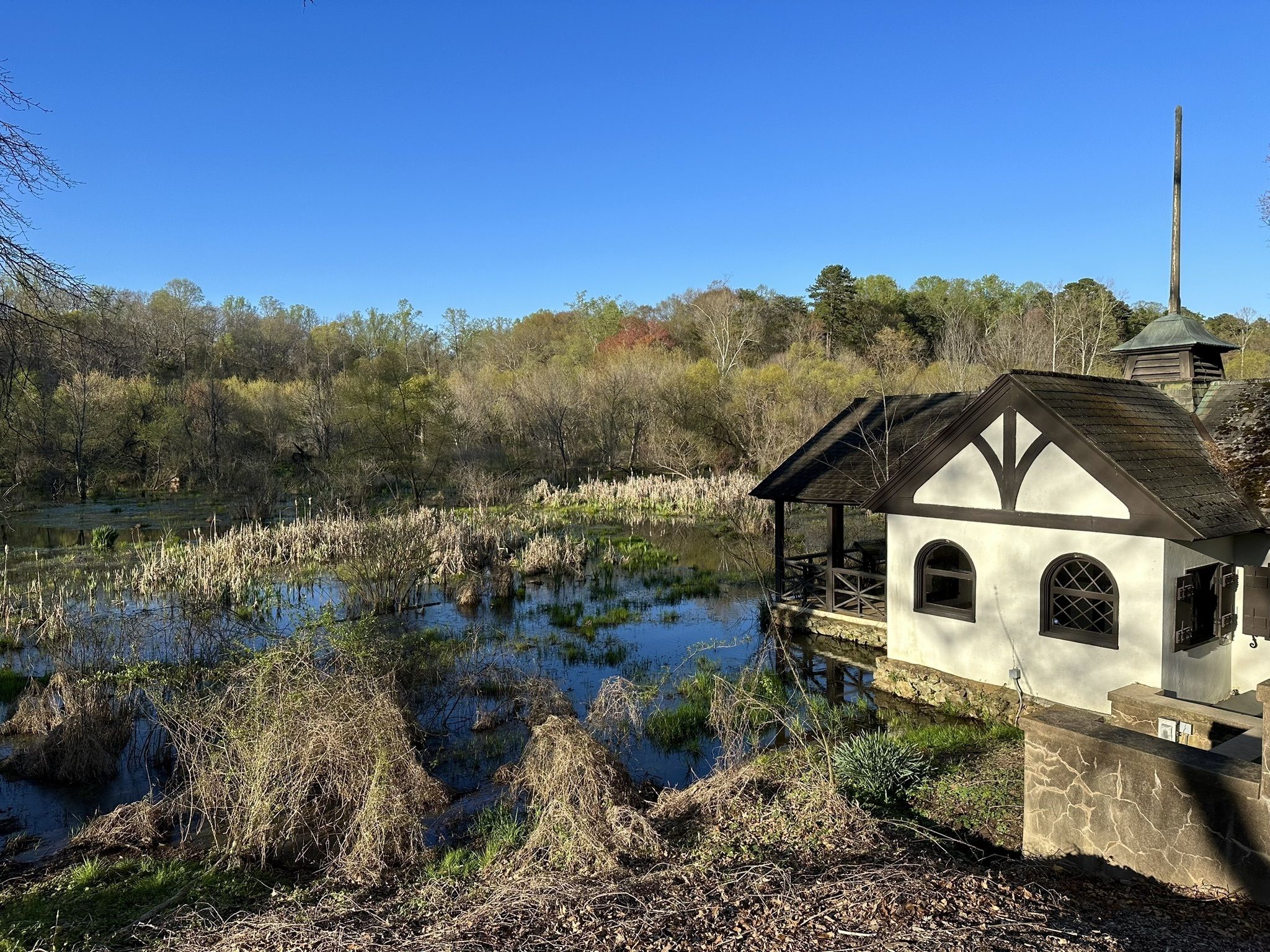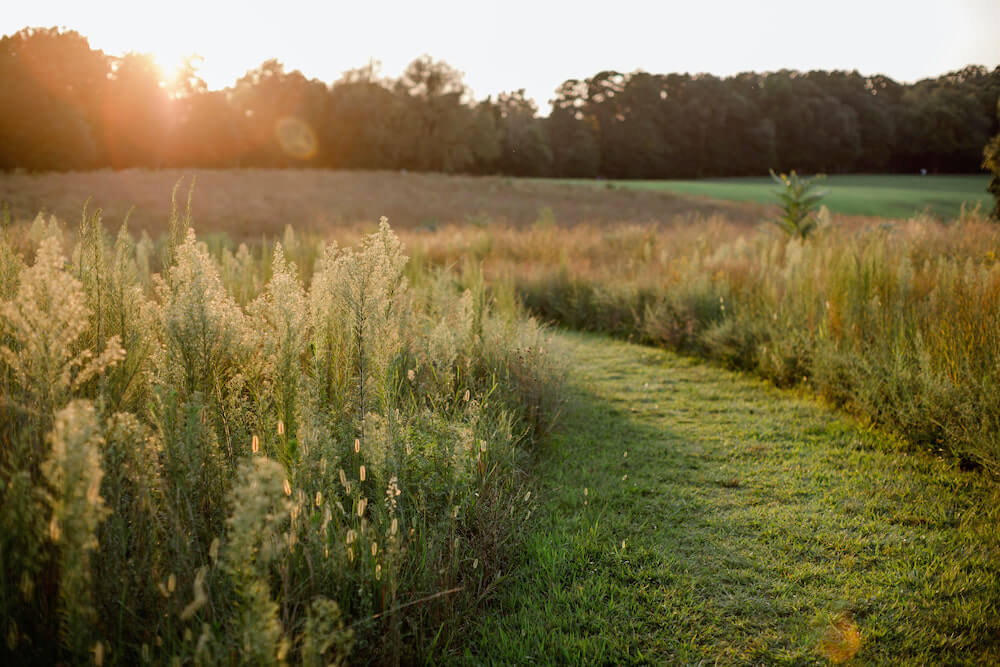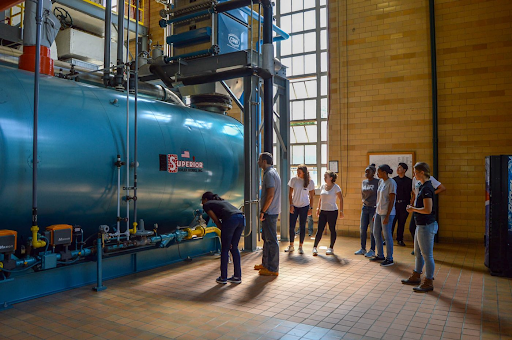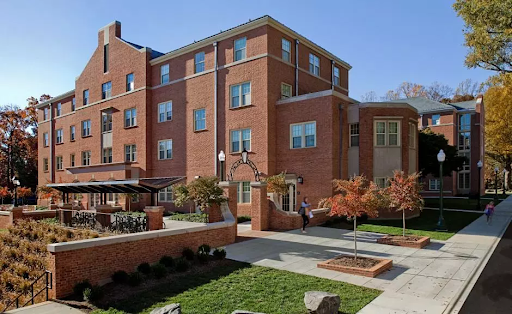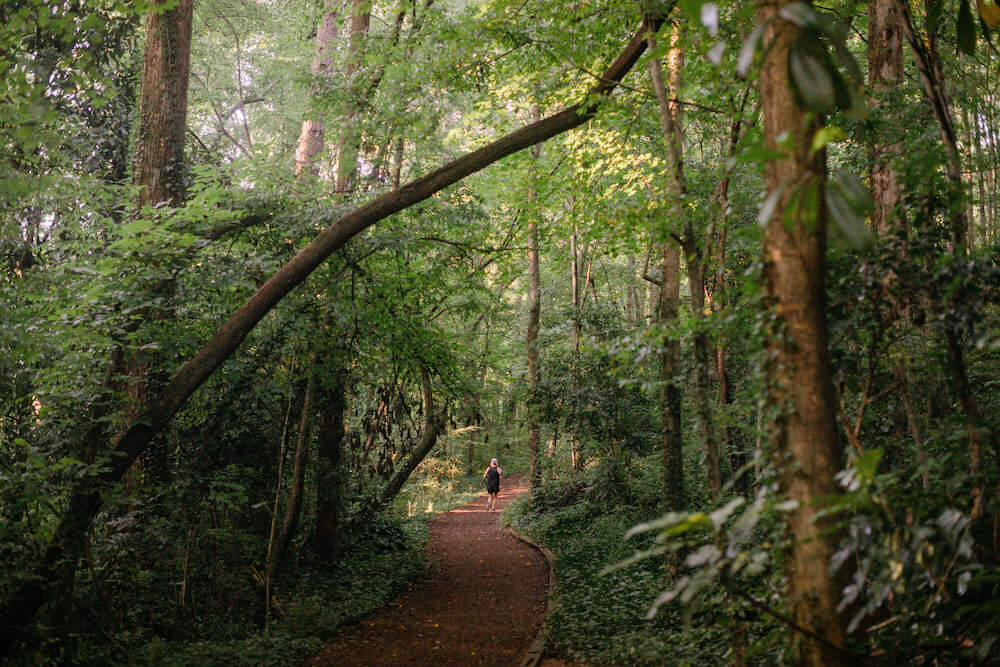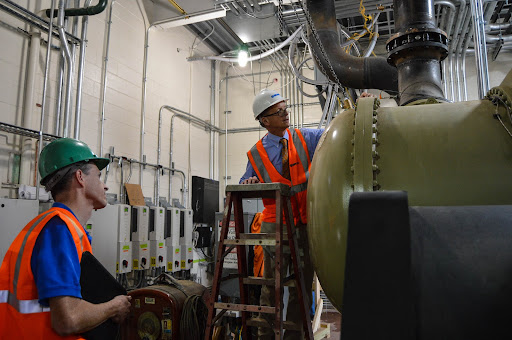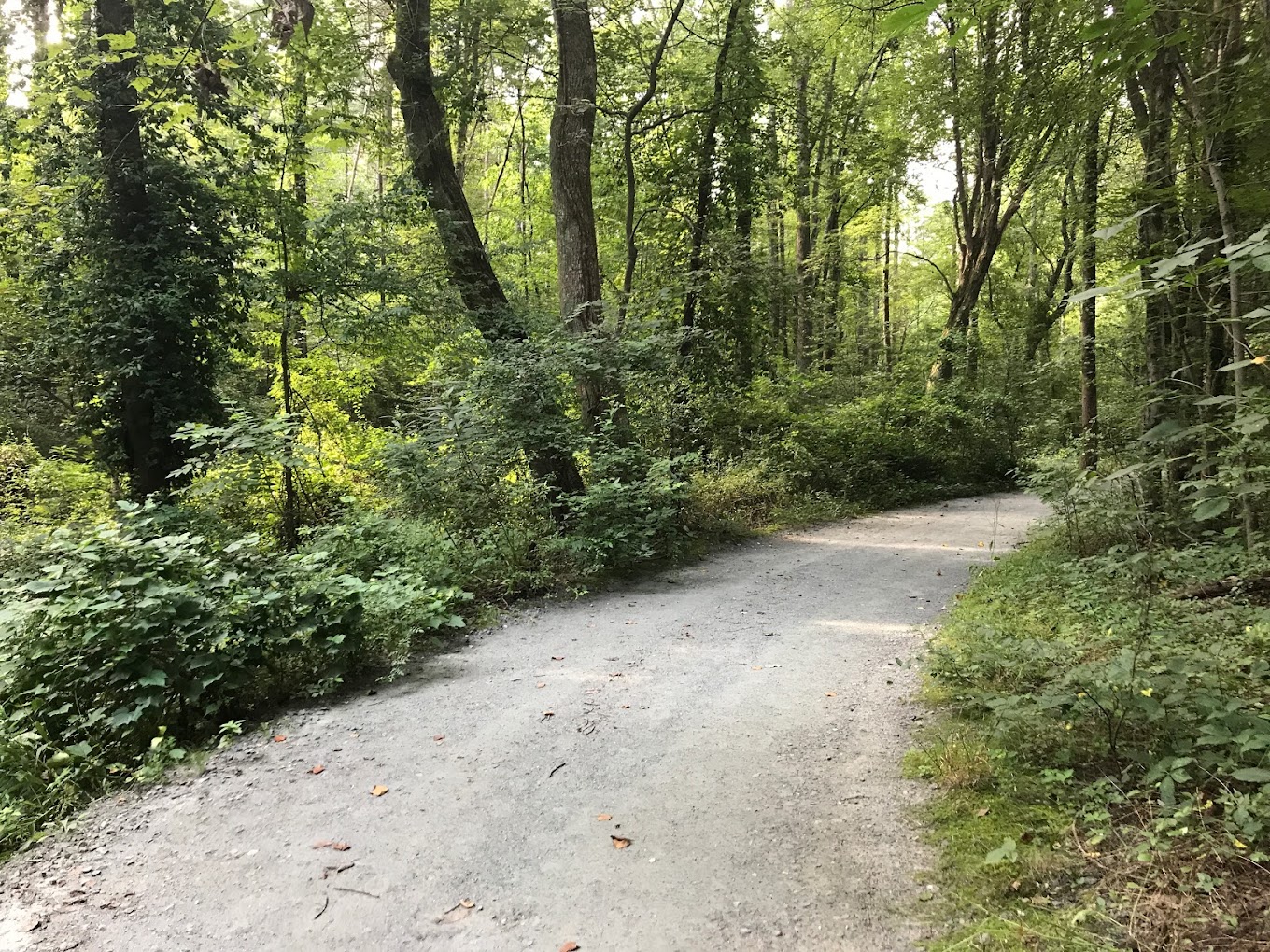Campus Engaged Learning
The Office of Sustainability works with faculty across all disciplines to integrate a range of collaborative, campus-based engaged and experiential learning opportunities into their teaching and research to help students expand their understanding of complex sustainability challenges.
Wake Forest faculty and staff are invited to schedule an exploratory meeting or submit project or research ideas by contacting our Engaged and Experiential Learning for Sustainability Manager, Krista Stump.
Faculty and staff who would like to request additional sustainability learning spaces or materials can fill out the form below.
Places for Learning
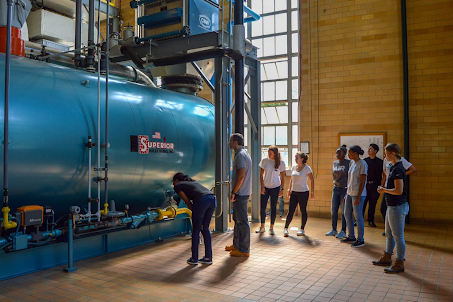
Sustainability Learning Spaces
Sustainability learning spaces are places on Wake Forest’s campus that demonstrate climate change solutions or Southeastern ecosystems and their services. These spaces provide rich, place-based opportunities for students to engage with course material through a disciplinary-specific sustainability lens. The Office of Sustainability coordinates class tours, engagements, and projects at these spaces as part of engaged and experiential learning activities.
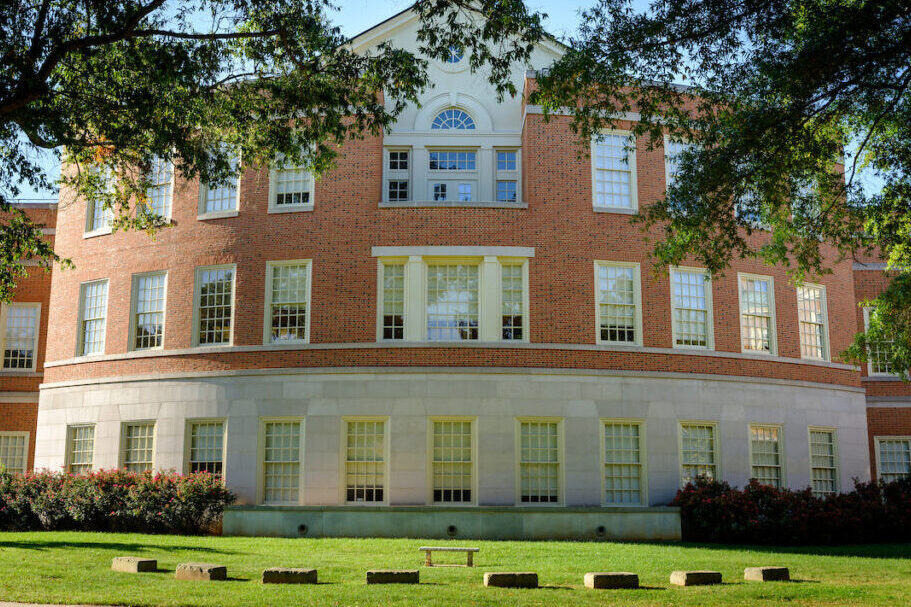
Outdoor Classrooms
Faculty who are solely seeking a space to host a class outside can take advantage of a number of outdoor classrooms on campus. Faculty and staff can enjoy these spaces on their own; the reservation process for each outdoor classroom varies.
Please note that this list of examples may not be exhaustive of all outdoor spaces that could be used to host a class.
How We Provide Support
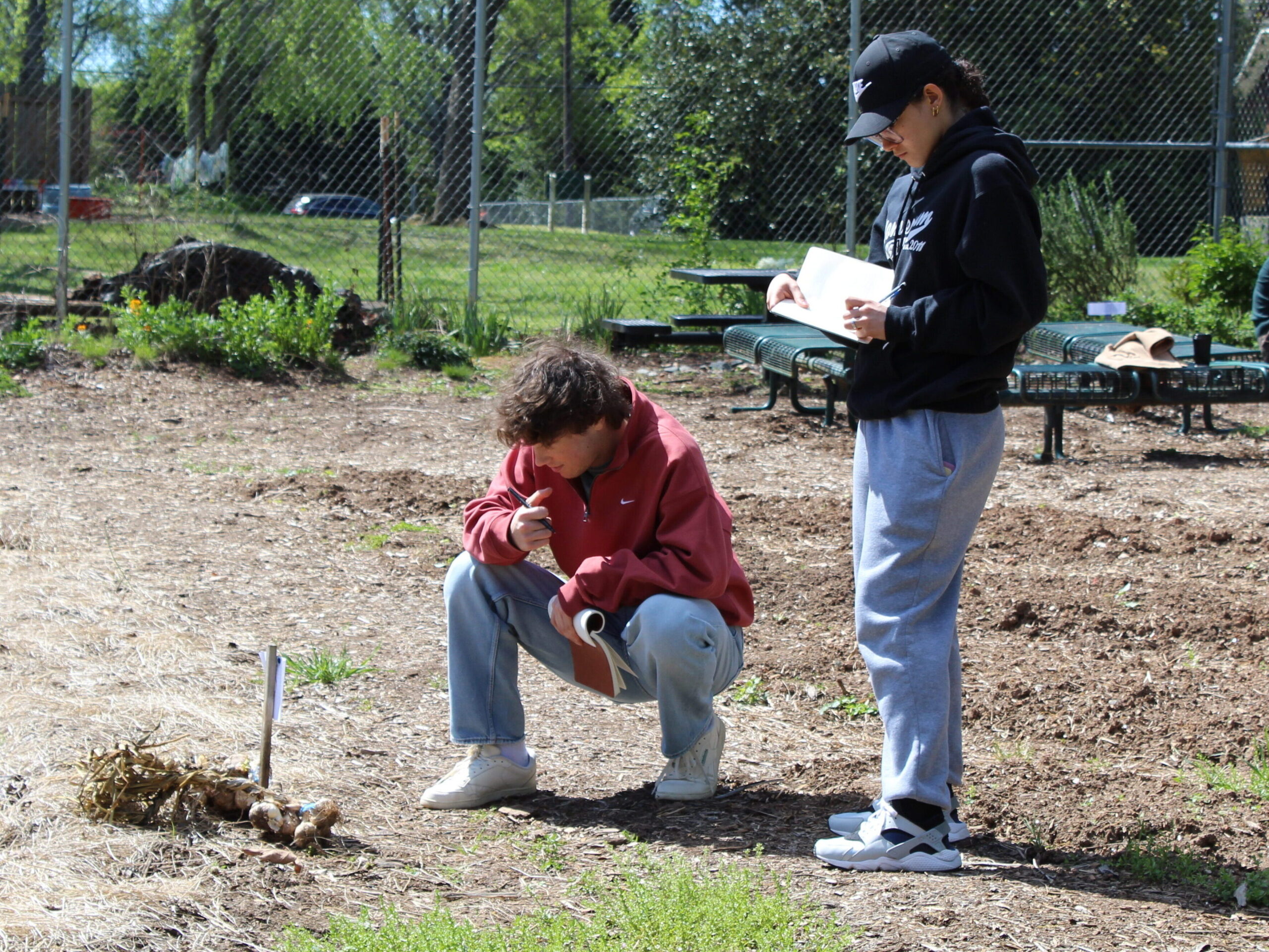
Engaged & Experiential Learning for Sustainability
The Office of Sustainability can fully plan and facilitate an engaged and/or experiential learning activity at a campus sustainability learning space for interested faculty. Office of Sustainability staff help develop learning outcomes for the experience, arrange the learning space, deliver guest lectures, develop projects, and coordinate with campus partners. Faculty who pursue this option agree to engage students in a post-activity reflection, implementing the important reflection step of the experiential learning cycle.
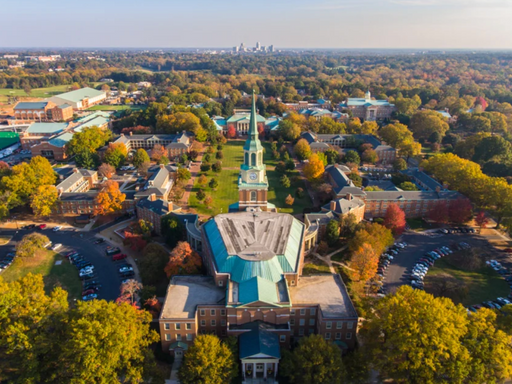
Resources for Learning
For faculty who would like to incorporate sustainability into their courses but don’t wish to pursue an engaged or experiential learning activity, the Office of Sustainability can provide curated resources on various topics. Resources can include learning modules, podcasts/videos, and selected readings about climate change and resilience, regenerative agriculture, and/or regional ecosystems. Faculty are empowered to use these resources to achieve course learning outcomes independently.
Examples of Campus Engaged Learning
Sustainability Learning Space Tour
Students in Environmental Ethics (PHI 163) took a guided tour of the campus heating plant and Utilities Operations Center (UOC). Dedicated staff from the Facilities & Campus Services Utilities Operations Team shared the measures the university is taking to reduce carbon emissions and achieve Wake Forest’s goal of climate neutrality by 2040. Students completed an assignment exploring personal vs. institutional responsibilities to reduce carbon emissions.
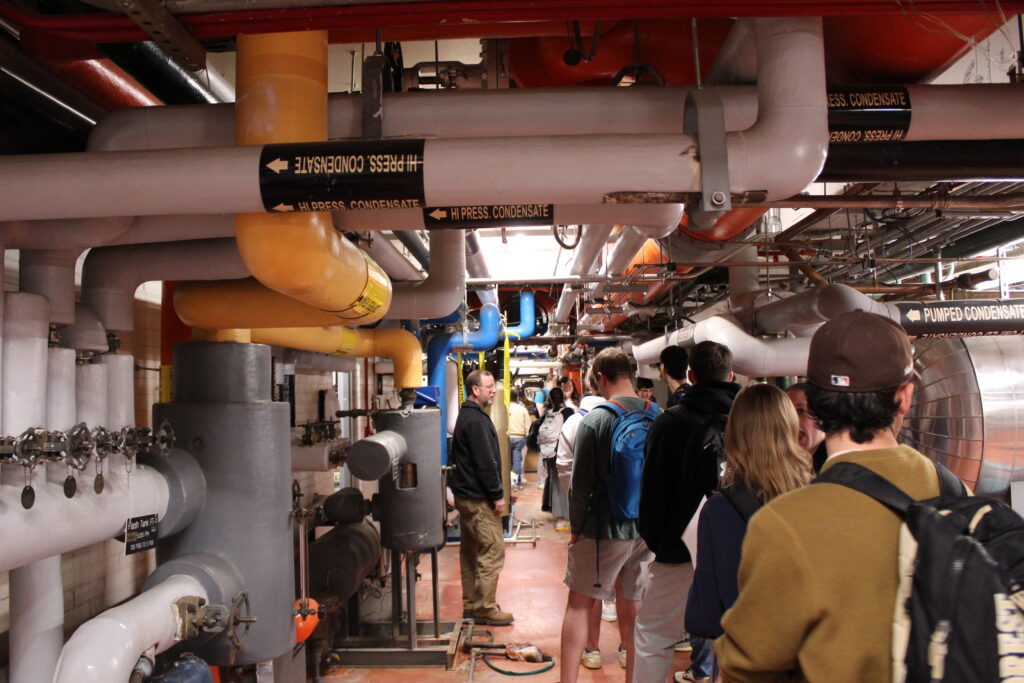
Cross-Disciplinary Class Projects
Students in Cultivating Food Justice (ENV 304) planted and cared for crops in the Campus Garden over the course of a semester. At the end of the semester, they harvested their crops and shared a potluck meal showcasing original recipes using the crops they had grown. Students in Introduction to Painting (ART 112) collaborated with the Food Justice class to create art prints of the crops using a traditional printmaking method and colors from found materials, such as hibiscus and black tea.
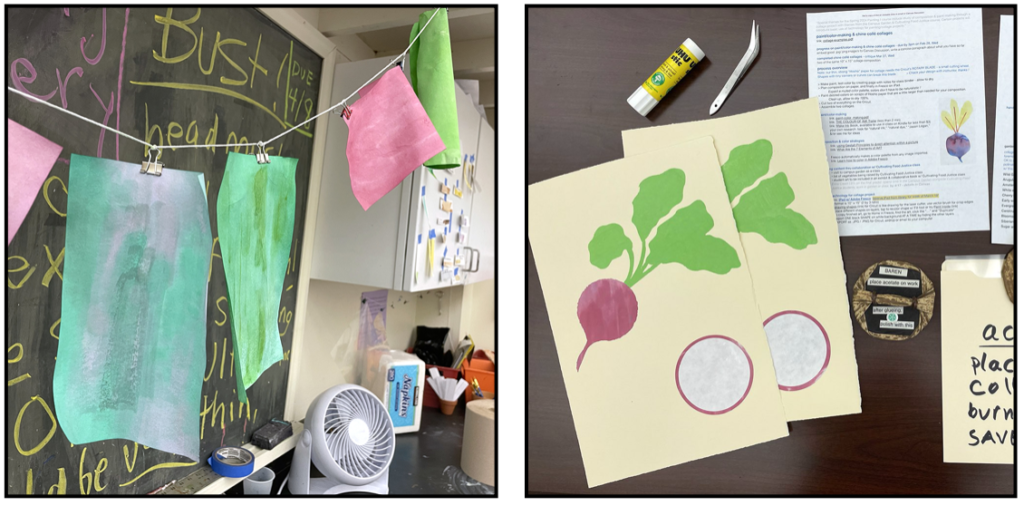
Semester-Long Research Project
Students in Introduction to Engineering Measurement and Analysis (EGR 112) created their own sensors to measure environmental conditions in the Campus Garden that impact plant health. The students designed their own research projects with the sensors and wrote abstracts to distill their findings.
“Engaging with campus partners allows the Engineering students to see firsthand the role that engineering plays in seemingly unrelated contexts, such as gardening. Through these types of projects, students have an opportunity to learn more about their campus and hopefully make a positive impact on it in the process.”
Dr. Kyle Luthy, Assistant Professor, Department of Engineering
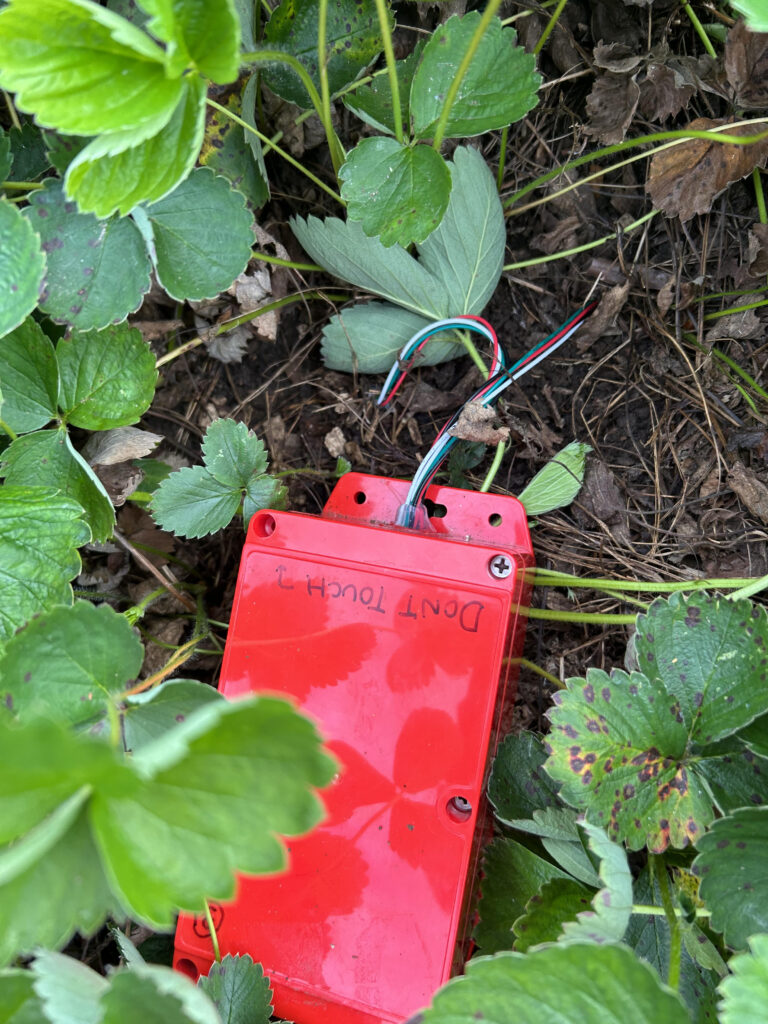
Existing Sustainability Learning Spaces
There are a wide variety of indoor and outdoor sustainability learning spaces on the Reynolda campus and historic Reynolda. Through engagements facilitated by the Office of Sustainability in close partnership with Facilities & Campus Services, Reynolda Gardens, and other campus partners, faculty are able to bring students into these spaces to learn from campus experts and enjoy place-based opportunities to achieve learning outcomes.
Related Posts
- Magnolias Curriculum Project: Cohort of 13 Faculty Members Explores Sustainability Across the Disciplines
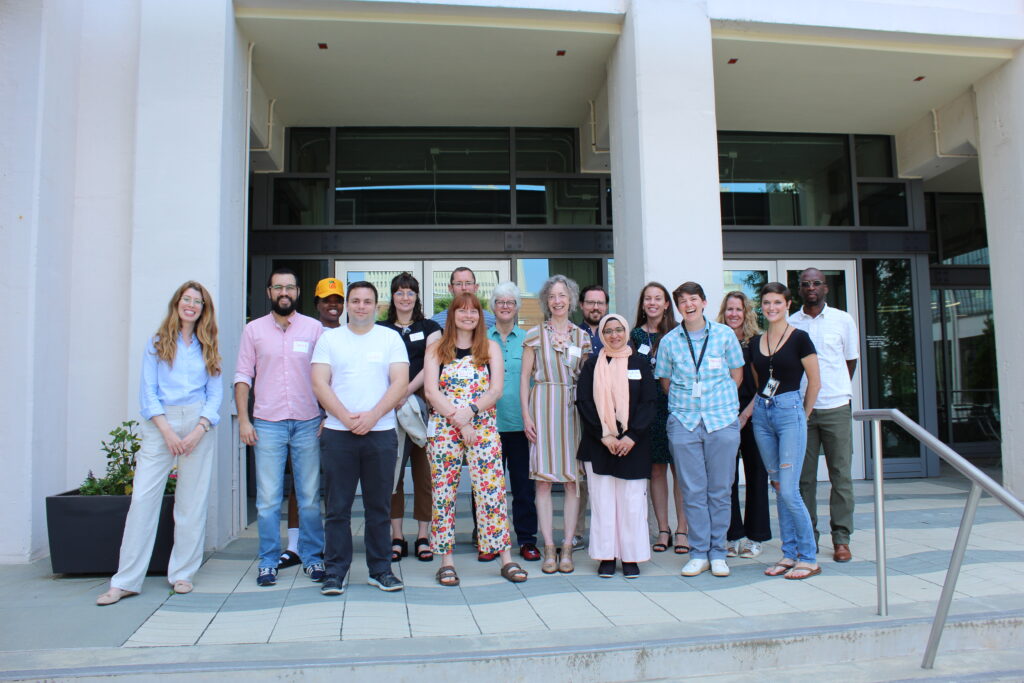 Each spring, the Office of Sustainability hosts the Magnolias Curriculum Workshop for faculty who are seeking to incorporate sustainability […]
Each spring, the Office of Sustainability hosts the Magnolias Curriculum Workshop for faculty who are seeking to incorporate sustainability […] - 12 Champions of Change Honored at 11th Annual Campus Sustainability Awards
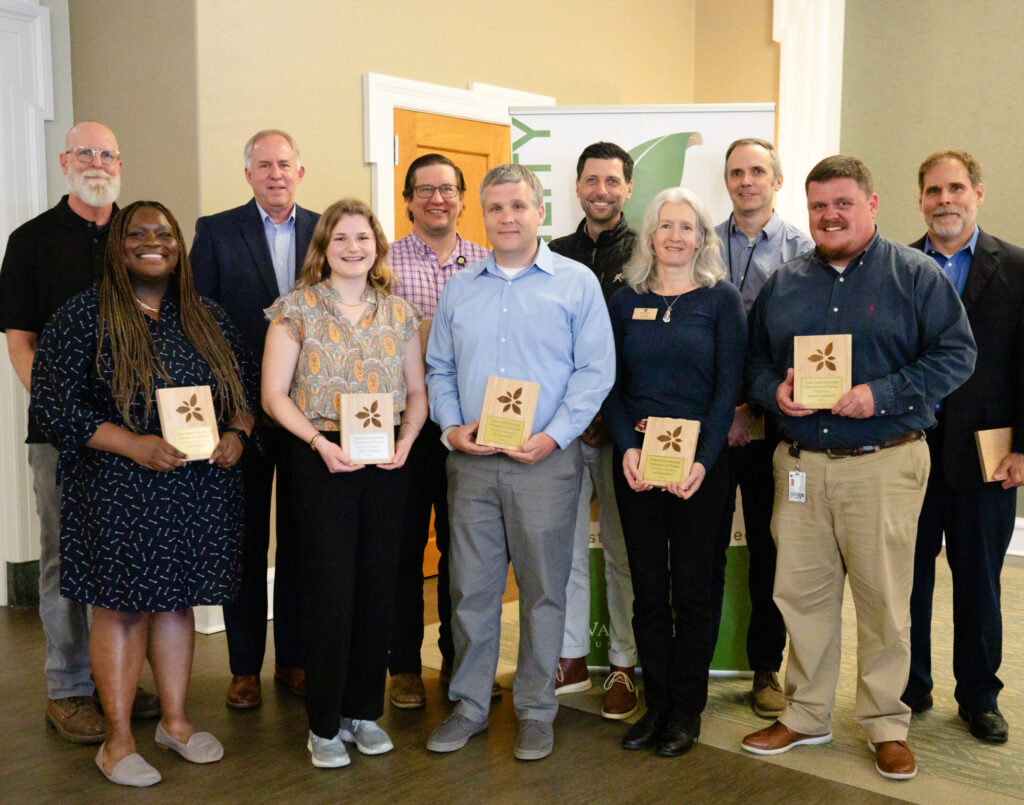 On April 9, the Office of Sustainability hosted the 11th annual Champions of Change Campus Sustainability Awards. Each year […]
On April 9, the Office of Sustainability hosted the 11th annual Champions of Change Campus Sustainability Awards. Each year […] - Welcome Sarah Rodgers, Outdoor Learning Spaces Coordinator
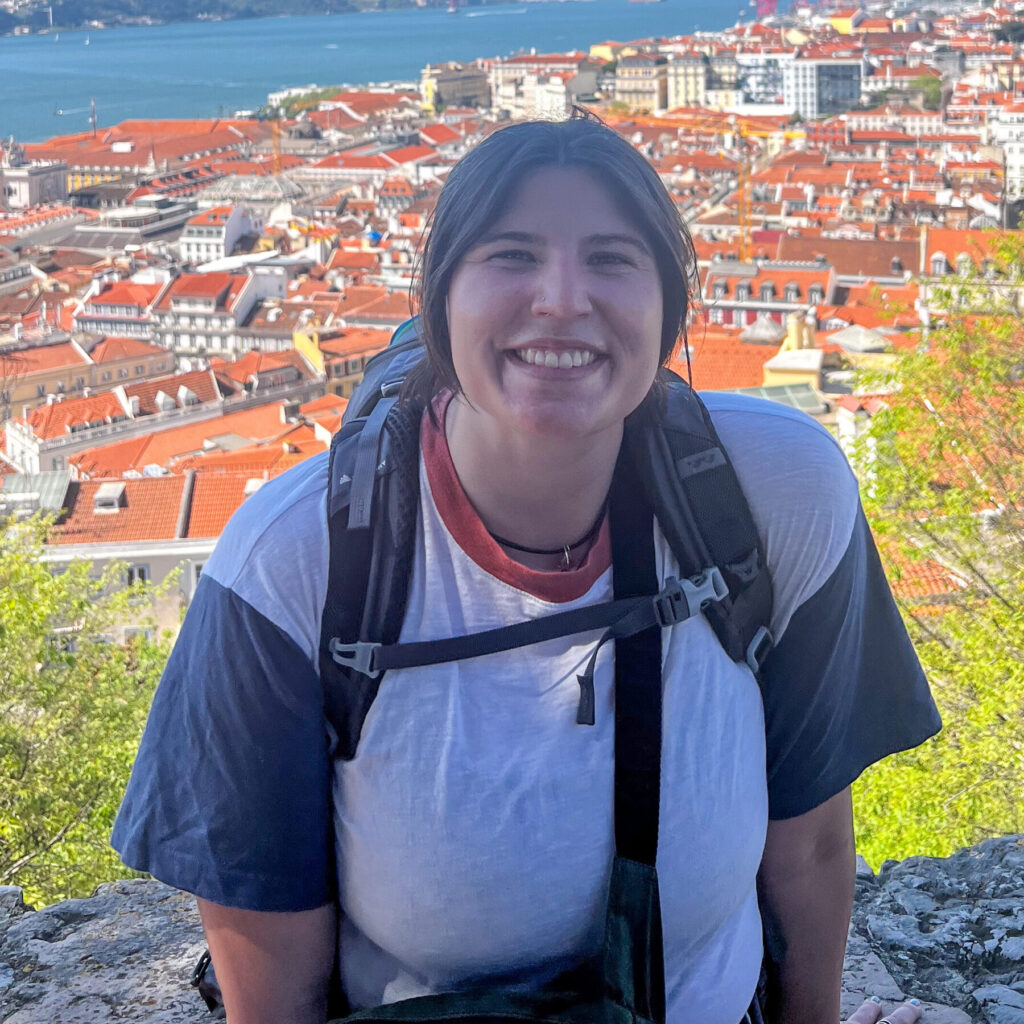 Sarah Rodgers joined the Office of Sustainability team on March 1 as our Outdoor Learning Spaces Coordinator. In this role, […]
Sarah Rodgers joined the Office of Sustainability team on March 1 as our Outdoor Learning Spaces Coordinator. In this role, […] - Taming the Flood: Building Resilience through Nature-Inspired Stormwater Management
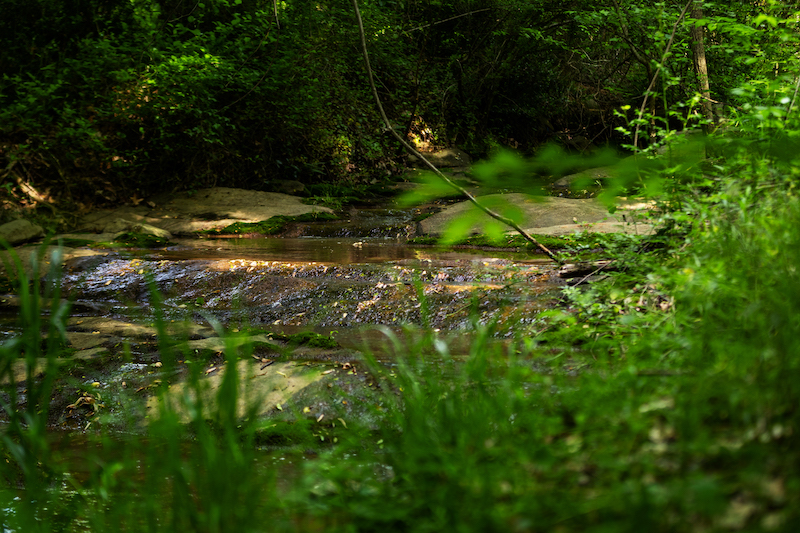 Perspectives on Sustainability, Quarterly Newsletter By: Krista Stump, Manager of Engaged and Experiential Learning for Sustainability Krista studied stormwater management […]
Perspectives on Sustainability, Quarterly Newsletter By: Krista Stump, Manager of Engaged and Experiential Learning for Sustainability Krista studied stormwater management […] - Indigenous Peoples’ Day: Rooting & Remembering
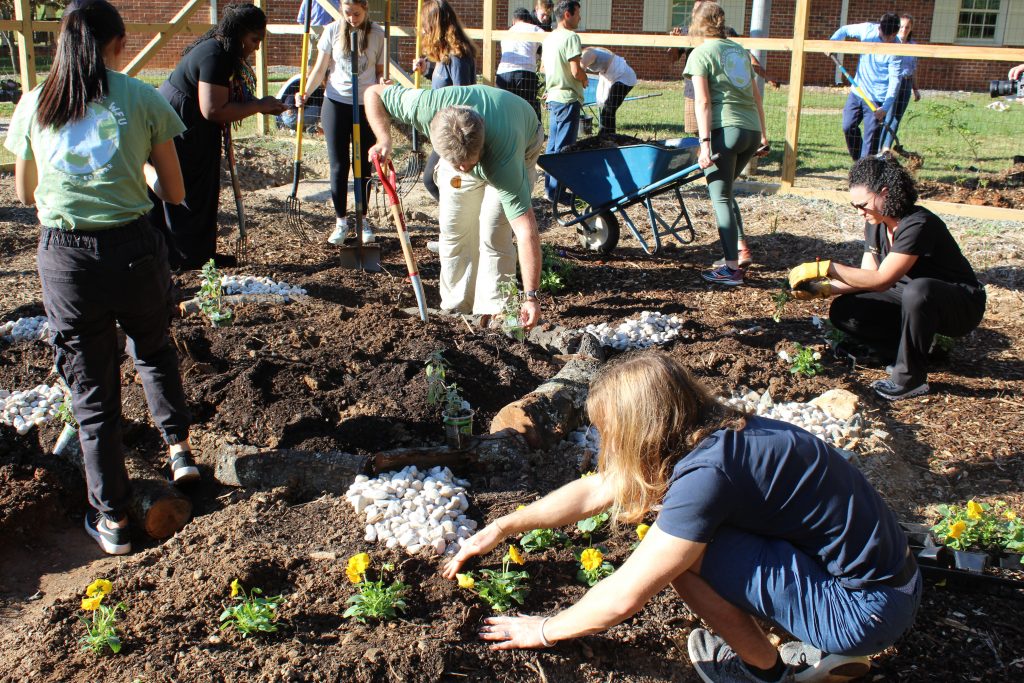 The Intercultural Center and Office of Sustainability welcomed both Native and non-Native members of the Wake Forest community to the […]
The Intercultural Center and Office of Sustainability welcomed both Native and non-Native members of the Wake Forest community to the […] - “Three Sisters” Garden @ Wake
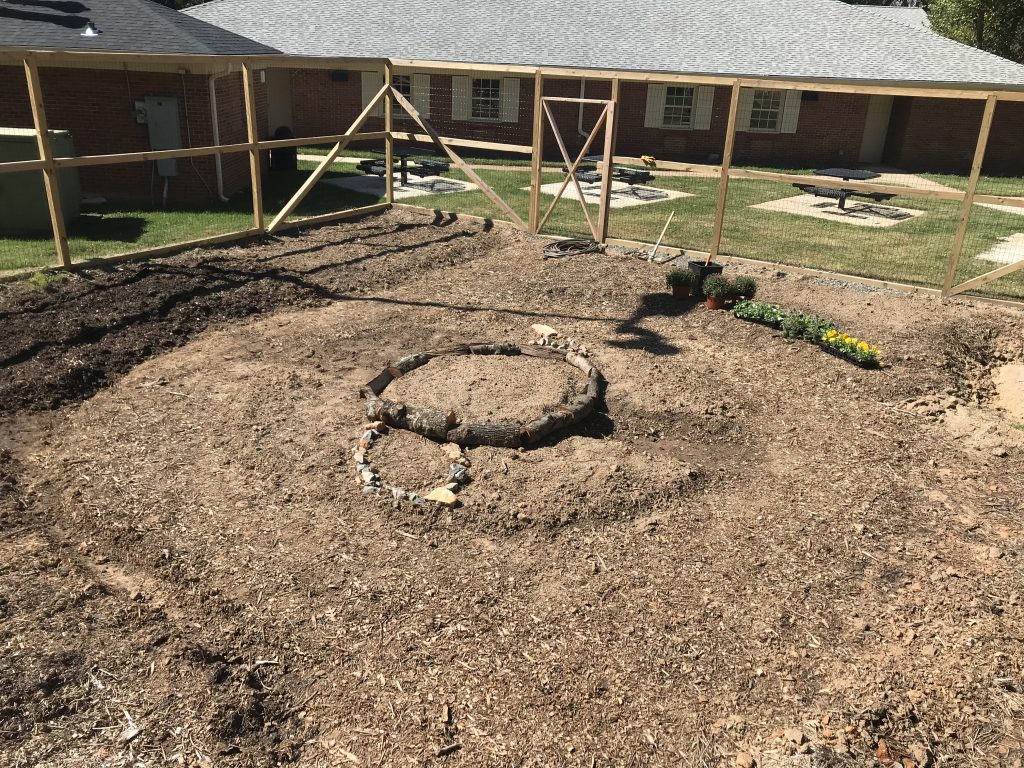 A new “three sisters” garden is being cultivated between Palmer Hall and Piccolo Hall – a collaboration between the Office […]
A new “three sisters” garden is being cultivated between Palmer Hall and Piccolo Hall – a collaboration between the Office […]

